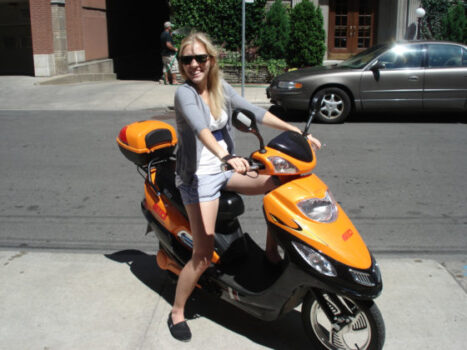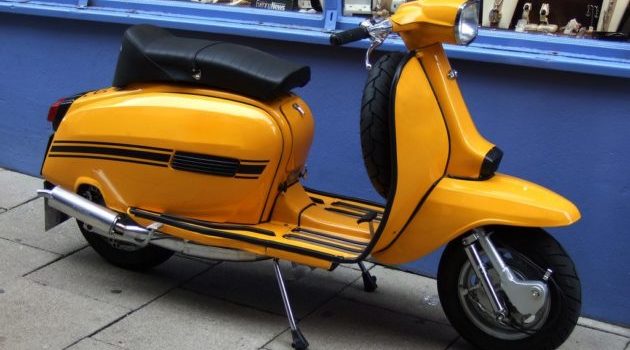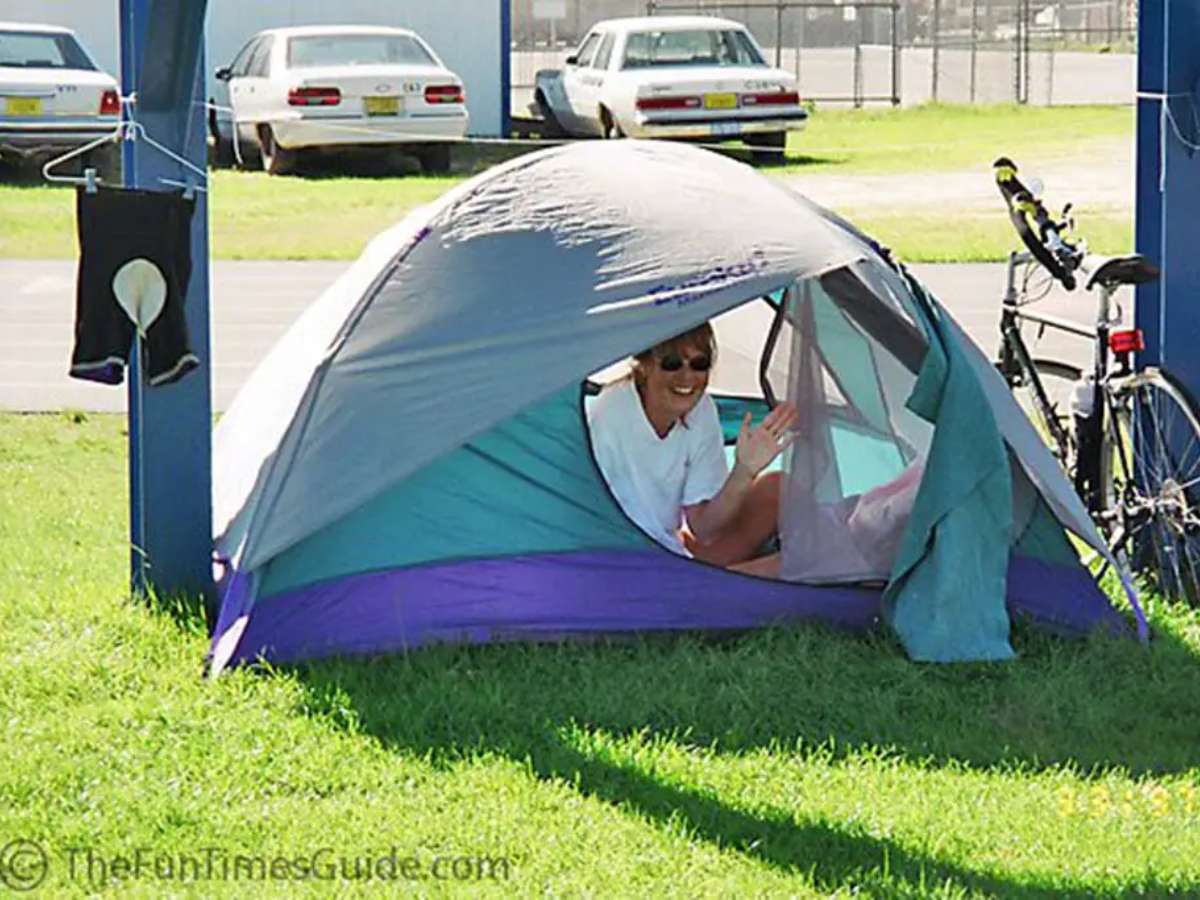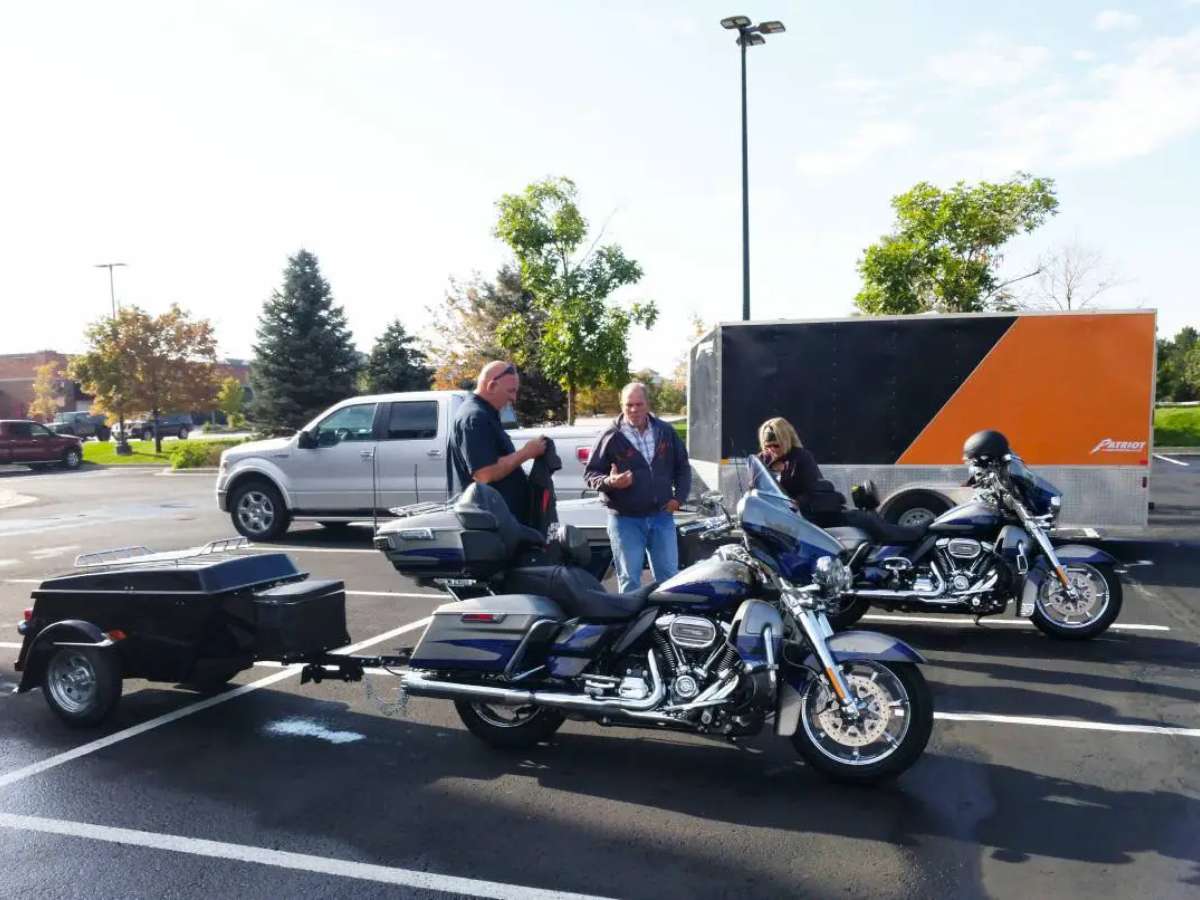With the high gas prices these days, you might be considering purchasing a scooter to get to and from work, go to the grocery store, or just run errands close to your home.

Many people are buying scooters or mopeds these days. And why not?… You can get over 100 miles per gallon on a scooter!
While the idea of buying a scooter or moped is a smart one, there are few things you should know before purchasing your first scooter.
Check out the following pros and cons of owning a scooter, as well as tips from scooter owners who’ve previously owned or sold scooters…
A moped is any 2-wheeled vehicle with a 50 cc engine or smaller and with a top speed of about 30 mph or less. An example of a moped would be a bicycle – with functioning pedals – that also has a small motor. However, a vehicle without pedals might still qualify as a moped. Each state’s department of motor vehicles defines mopeds and scooters a little differently and people frequently use the terms interchangeably. A scooter is a vehicle that is more powerful than a moped but not nearly as powerful as most motorcycles. They don’t have pedals, but they have smaller engines than motorcycles and riders can frequently place both feet flat in front of them while driving. Any vehicle like a moped that can exceed the top speed for them defined by local laws then qualifies as a scooter. For example, a Vespa is actually a scooter, not a moped. The manufacturer’s popular scooters all have a top a speed of at least 40 mph. Some can reach speeds of 80 mph or higher.
Source
Pros:
- Scooters get wonderful gas mileage. Some electric scooters even get 100+ mpg — which is great when compared to a car. If you’re willing to sacrifice the ability to get on the freeway and you decide to purchase one of the smaller models, then you can get even better gas mileage from your first scooter.
- Scooters can be inexpensive. A word of warning here though… some of the newer scooters with all the bells and whistles (such as larger wheels, ability to go on the highway, and stylish designs) can be quite expensive — costing upwards of $5,000. If you’re concerned about the environment, a hybrid scooter or an electric scooter will cost around $11,000. However, on the low end, you can get a nice new scooter for about $825. So, all in all, scooters aren’t that expensive. If you buy a used scooter, you’ll spend even less — and since scooters tend to not be used much, it would be nearly like getting a new one!
- Scooter insurance is cheaper than motorcycle or car insurance. Scooter insurance costs approximately $120 a year for all the bells and whistles (such as coverage in case someone steals your scooter, which is common). This is way less than car insurance — where liability can cost hundreds of dollars, if not more, each year.

Cons:
- In some states (such as New Jersey), scooters are treated the same as motorcycles. That means that there are some fees that you have to pay before you can take your scooter on the road. So it behooves you to find out what scooter laws are on the books in your state. You may find that buying a scooter is actually not going to save you any money at all.
- Not all scooters are highway worthy. If you’re thinking about buying your first scooter to get to and from work and you have to travel a highway to get to work, then a scooter may not be the best option for you. No matter what a scooter manufacturer may say, scooters have small wheels — and at the high speeds that you would need to travel on a highway, your scooter could be difficult to control, making accidents a definite possibility.
- Depending on which city you live in, you could have trouble parking your scooter. Many cities in the United States are not scooter friendly… yet. Often, you can end up paying almost as much (if not the same amount) to park a scooter as you would pay to park a car. Also, in some cities like my own (Seattle), car owners have been known to move scooters out of parking spaces, and even knock them over.
Most electric scooters today are powered by rechargeable lithium ion batteries, though some early models used nickel-metal hydride batteries … All electric scooters provide for recharging by plugging into ordinary wall outlets, usually taking about 8 hours to recharge.
Source
Before You Buy A Scooter
If you’ve never ridden a scooter or motorcycle before, it’s a good idea to take a scooter driving course — so you will know everything there is to know about riding your first scooter. Many cities have 1-day courses to teach you the basics of riding scooters.
Keep in mind, you will need safety gear to ride a scooter — just like you would if you were riding a bicycle or motorcycle. You’ll need:
- A closed-faced helmet (Open-faced helmets are not a good idea, because you could do serious damage to your face if you should crash — even if you’re riding at low speeds.)
- Pads that will protect your knees and elbows in the event of a crash (Yes, even a slow speed crash.)
More Tips For Choosing Your First Scooter
In addition to the links I’ve included above, here are some other resources to help you pick the right scooter for your needs:



